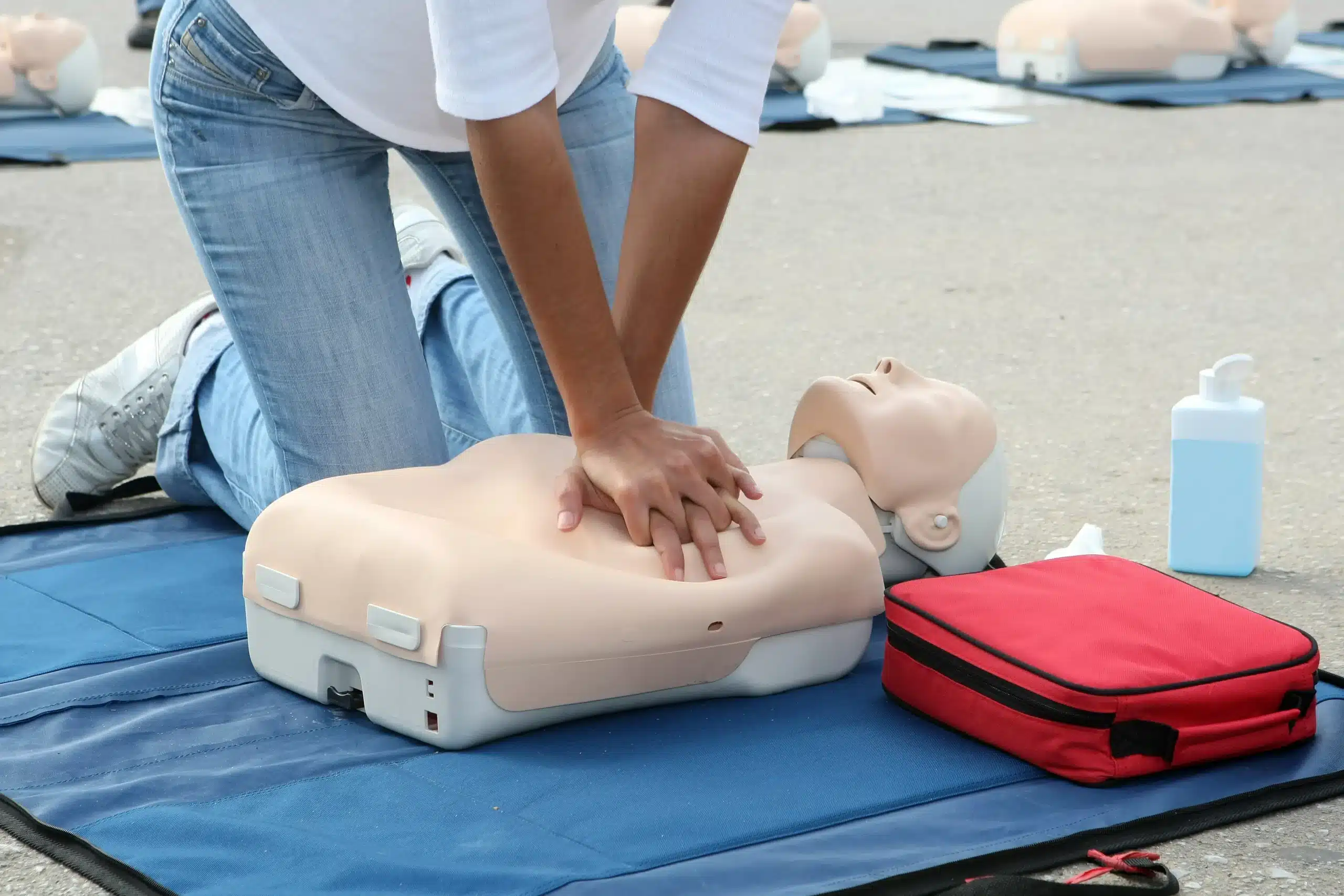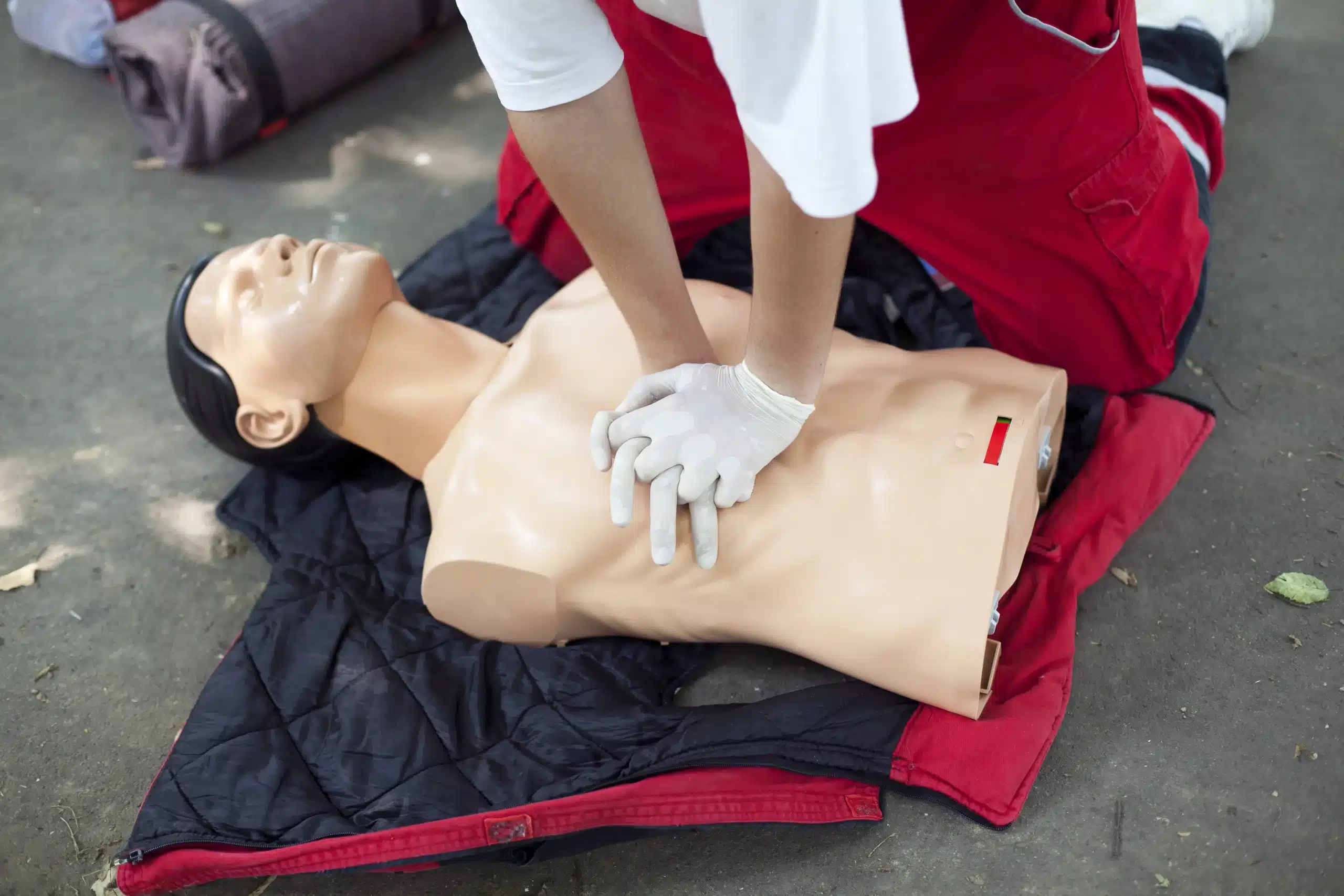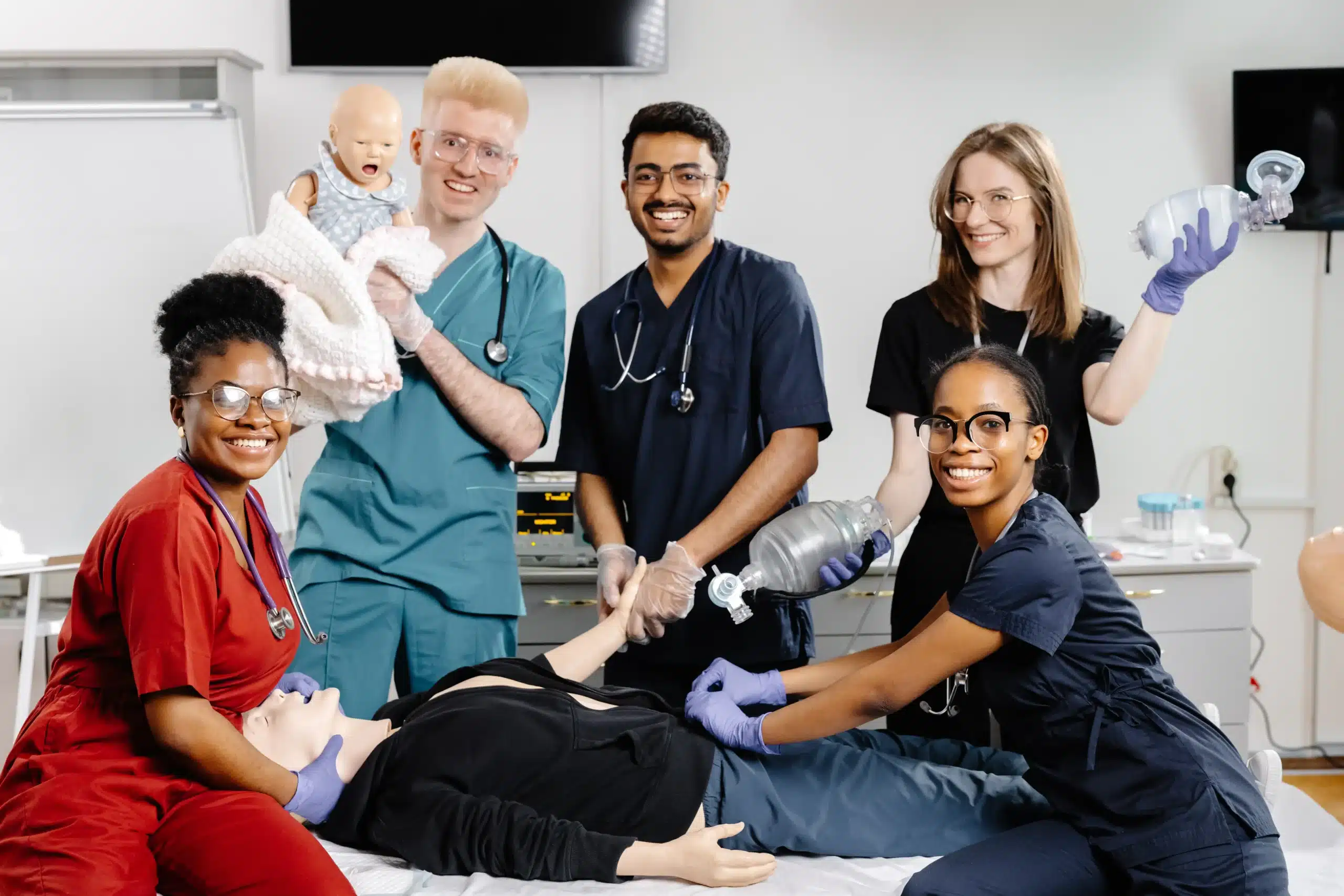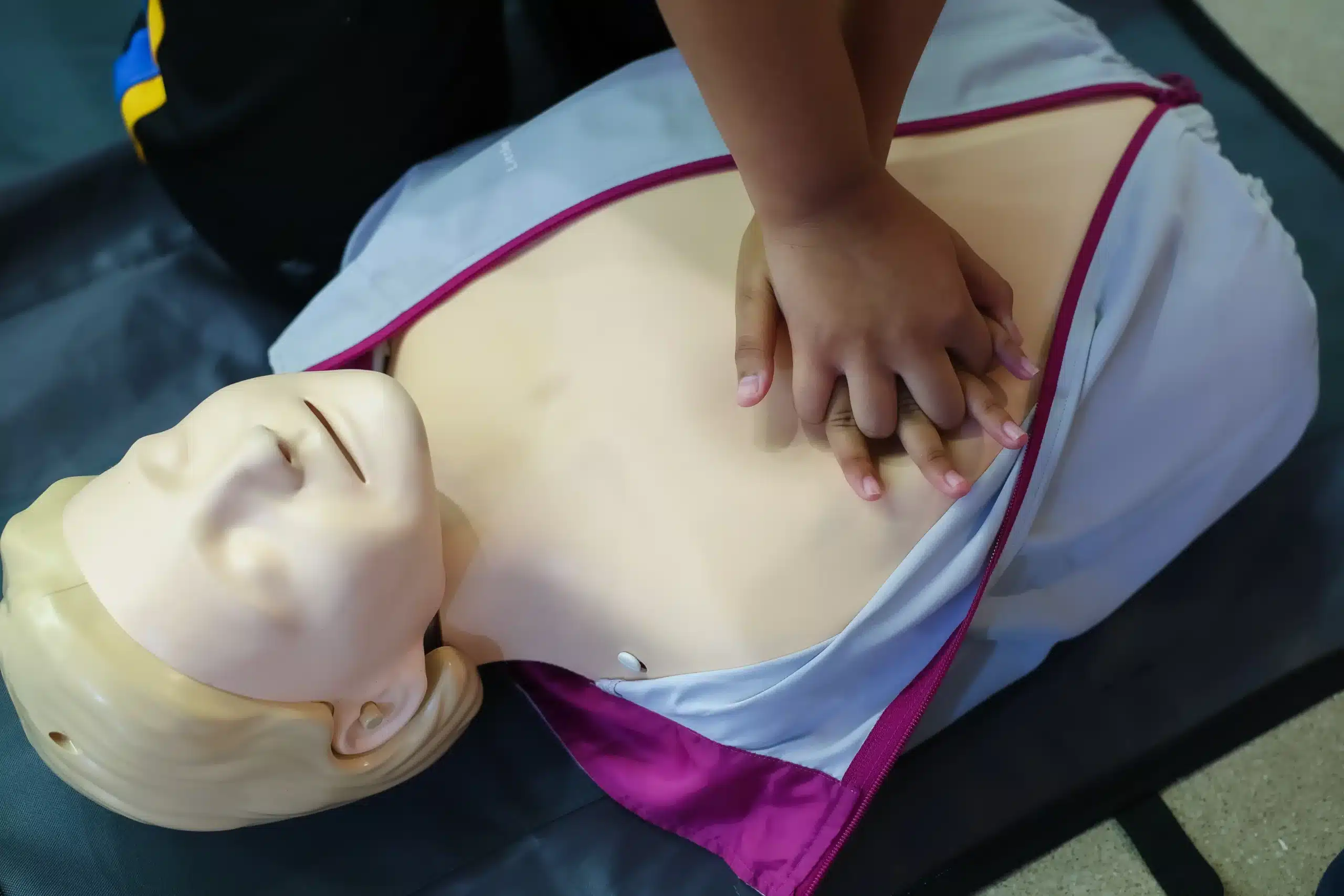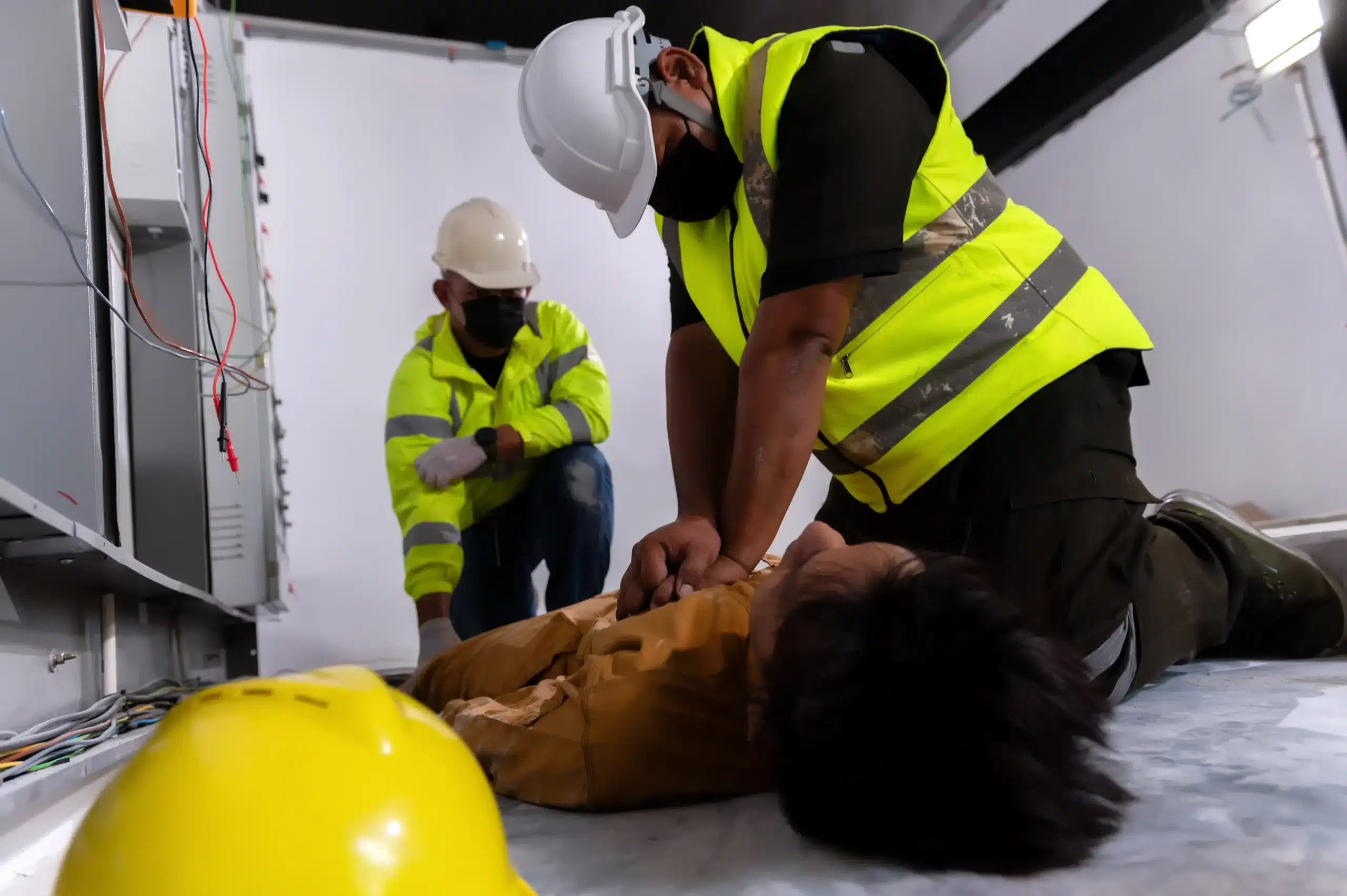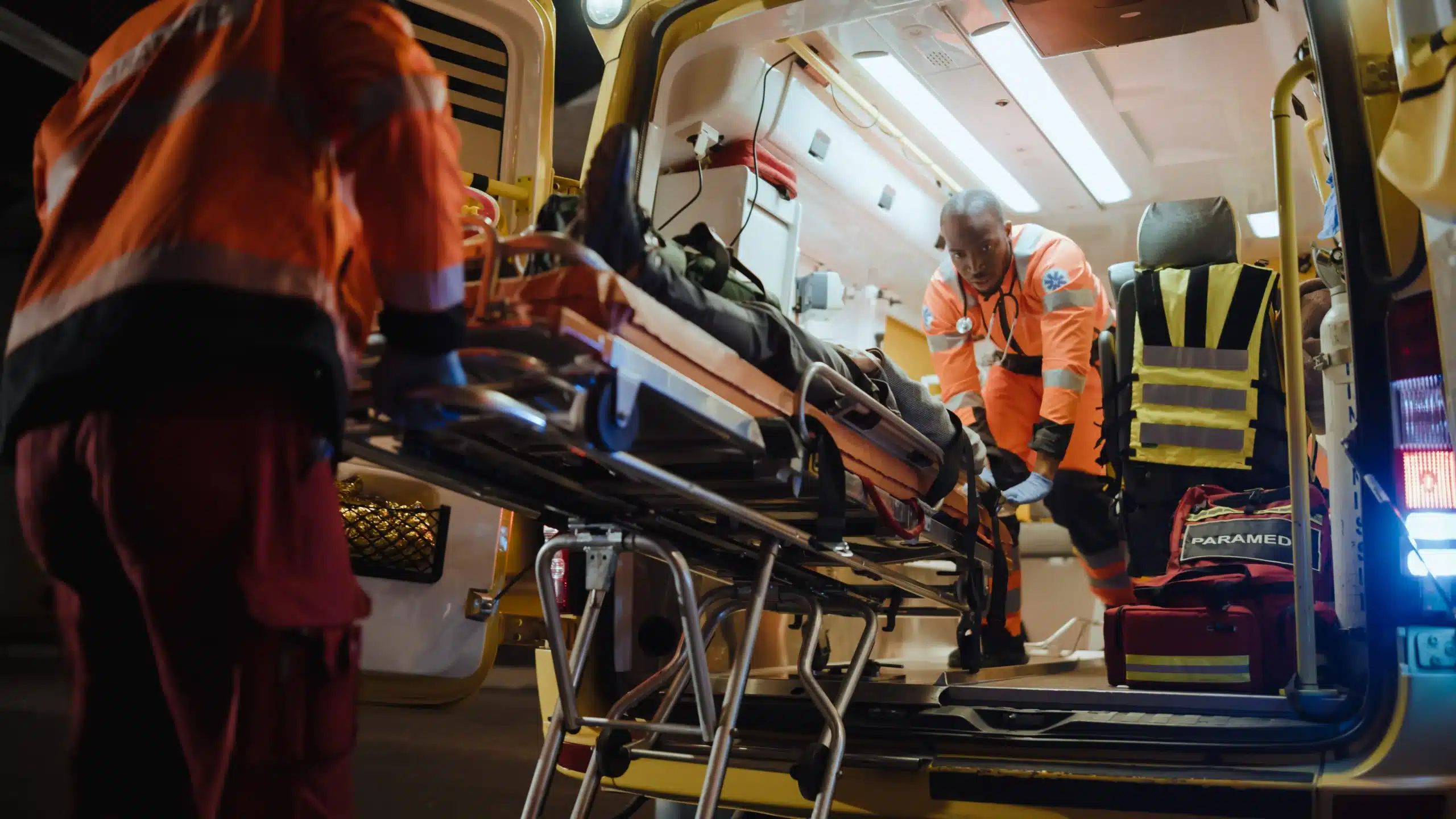In the healthcare field, seconds can matter. When it comes to CPR, confidence and competence are paramount. Traditional CPR training often falls short, with skills fading quickly after certification. RQI in Concord offers a better way. Resuscitation Quality Improvement (RQI) revolutionizes CPR training with a focus on continuous improvement and skill retention. This article will explore the ins and outs of RQI, highlighting its key features, benefits, and how it differs from traditional CPR courses. We’ll also delve into the specifics of RQI certification in Concord, including where to find classes and what to expect during training. Whether you’re a seasoned healthcare professional or just starting your career, this guide will provide valuable insights into the power of RQI.
Key Takeaways
- RQI improves CPR skills retention: Frequent, short practice sessions and personalized feedback help healthcare professionals maintain their skills and confidence.
- RQI training is flexible and efficient: The blended learning format combines online modules with hands-on practice, making it easier to fit CPR training into busy schedules.
- RQI enhances patient care: By mastering essential CPR techniques through regular practice, providers are better prepared to respond effectively in emergencies, ultimately improving patient outcomes.
What is RQI and How Does It Change CPR Training?
CPR Training’s Evolution
The way we learn and practice CPR has changed. The American Heart Association (AHA) recognized the need for a more effective approach than traditional CPR training and developed the Resuscitation Quality Improvement (RQI) program. RQI helps healthcare professionals maintain their CPR skills through regular, short practice sessions. This ongoing training ensures providers are always ready to respond to emergencies with confidence and competence. Learn more about RQI on the AHA website. At Safety Training Seminars, we offer convenient RQI classes to help you stay up-to-date.
RQI’s Key Features
RQI uses a blended learning approach combining online modules with hands-on practice. Short, frequent skills sessions using realistic simulations and voice-assisted manikins (VAMs) help build muscle memory and improve retention. This method allows for personalized feedback and helps you master CPR skills at your own pace. The program’s emphasis on regular practice ensures skills remain sharp, unlike traditional CPR courses where skills can fade quickly. Register for our RQI classes in Visalia for convenient, local training.
RQI vs. Traditional CPR
Traditional CPR training often involves lengthy, infrequent classes. Studies show that skills learned in these traditional courses can deteriorate within months. RQI’s “low-dose, high-frequency” model combats this skill decay with shorter, more frequent training sessions, typically quarterly. This reinforces skills and improves long-term retention, ensuring you’re always prepared to deliver high-quality CPR when it matters most. Our low price guarantee makes staying current with your RQI training affordable and accessible. Contact us to learn more.
RQI Certifications in Concord
RQI, or Resuscitation Quality Improvement, represents a significant advancement in CPR training. It moves away from the traditional classroom model and offers a more flexible, personalized approach. In Concord, you can find RQI certifications for several disciplines, ensuring healthcare providers have the skills they need to respond to emergencies effectively.
BLS RQI Certification
The BLS RQI certification focuses on the foundational skills of CPR. This program covers essential life-saving techniques for adults, children, and infants, including chest compressions, rescue breaths, and using an AED. The RQI format allows healthcare professionals to refresh these crucial skills regularly, leading to improved confidence and proficiency. If you need your BLS RQI certification, several RQI course options are available in Concord.
ACLS RQI Certification
For healthcare providers who encounter more complex cardiac emergencies, ACLS RQI certification is essential. This advanced program builds upon the basics of BLS and covers managing cardiac arrest, stroke, and other acute cardiovascular events. ACLS RQI training emphasizes teamwork, effective communication, and using advanced life support algorithms. You can find convenient ACLS RQI training at several locations in Concord.
PALS RQI Certification
PALS RQI certification focuses on the specific needs of pediatric patients. This program equips healthcare providers with the knowledge and skills to respond to emergencies involving infants and children. From respiratory distress to cardiac events, PALS RQI covers a wide range of pediatric emergencies. Like other RQI programs, PALS RQI emphasizes continuous quality improvement through regular practice and assessment. Find a PALS RQI course in Concord to maintain your skills and certification.
Who Should Take RQI Classes?
Healthcare Professionals
RQI classes are designed with healthcare professionals in mind. From nurses and physicians to therapists and technicians, anyone working in a healthcare setting benefits from the up-to-date training these courses provide. The American Heart Association RQI program offers a streamlined way to earn and maintain BLS, ACLS, and PALS certifications, ensuring healthcare providers are prepared for cardiac emergencies. This focus on consistent, high-quality CPR skills is crucial for positive patient outcomes. Learn more about how RQI benefits healthcare providers through Concord CPR classes.
Emergency Responders
Emergency responders, such as paramedics, EMTs, and firefighters, are on the front lines of critical situations. RQI programs offer these professionals essential training in BLS, ACLS, PALS, and even specialized courses like the Neonatal Resuscitation Program (NRP). Regular practice and assessment through RQI helps ensure responders maintain the high level of proficiency needed to handle emergencies effectively and improve patient outcomes.
Medical Students and Residents
For medical students and residents, RQI classes provide a strong foundation in life-saving techniques. The program’s structure, featuring short, frequent refresher courses, helps build and maintain these crucial skills throughout their education and training. High-quality CPR is a cornerstone of effective patient care, and RQI helps instill this from the very beginning of a medical career.
Benefits of RQI Training in Concord
RQI training offers several advantages for healthcare providers and anyone seeking CPR certification. It’s designed to build confidence and improve resuscitation skills through a more flexible and efficient approach.
Improve Skills Continuously
Traditional CPR training often involves lengthy sessions followed by infrequent recertification. This can lead to skill decay and decreased confidence over time. RQI addresses this by focusing on continuous skill improvement. Short, frequent practice sessions help maintain proficiency and build muscle memory, ensuring you’re always ready to respond effectively in a real-life emergency. Studies show that this method improves CPR psychomotor skills and boosts confidence. This ongoing reinforcement helps healthcare professionals deliver high-quality CPR, ultimately leading to improved patient outcomes.
Learn Efficiently
RQI offers a streamlined and efficient way to learn and maintain CPR skills. The program combines online learning modules with hands-on practice at RQI skill stations. This blended learning approach allows you to learn at your own pace and focus on mastering the essential techniques. Because RQI sessions are shorter and more frequent than traditional CPR classes, they fit more easily into busy schedules. This makes it easier to stay up-to-date with the latest guidelines and best practices without disrupting your workflow. For medical professionals in Concord, RQI is a modern and efficient path to American Heart Association BLS, ACLS, and PALS certifications.
Get Immediate Feedback
One of the key benefits of RQI is the immediate feedback provided during practice sessions. RQI skill stations use advanced technology to monitor your performance, providing real-time feedback on compression depth, rate, and recoil. This instant feedback helps you identify areas for improvement and refine your technique. Knowing exactly what you need to adjust allows for more effective practice and faster skill development. This personalized feedback loop is crucial for building confidence and ensuring you’re performing CPR correctly. Studies show the effectiveness of audiovisual feedback in improving CPR performance even weeks after training.
Flexible Learning
RQI’s flexible learning format makes it easier than ever to fit CPR training into your schedule. The online modules can be completed anytime, anywhere, offering convenience and accessibility. The hands-on skill sessions are also flexible, with multiple stations available and the ability to schedule practice time that works for you. This adaptable approach eliminates the need to block out large chunks of time for traditional classroom-based training. RQI training offers a blend of online and in-person skill practice, making it adaptable to various learning styles and schedules.
Better Patient Outcomes
Ultimately, the goal of any CPR training program is to improve patient outcomes. RQI’s focus on high-quality CPR and continuous skill improvement contributes directly to this goal. Studies have shown a link between high-quality CPR and increased survival rates from cardiac arrest. By emphasizing consistent practice and providing immediate feedback, RQI helps healthcare providers deliver the best possible care in critical situations. This commitment to quality can make a real difference in the lives of patients experiencing cardiac arrest.
What Happens During RQI Training?
RQI (Resuscitation Quality Improvement) training takes a different approach than traditional CPR classes. It focuses on short, frequent practice sessions to build and maintain crucial skills. This method helps you retain information and perform high-quality CPR in emergencies. Let’s break down what you can expect.
Course Structure and Duration
RQI training blends online learning with hands-on practice. You’ll begin with online modules covering key concepts and techniques. These are followed by skills sessions at an RQI station equipped with specialized mannequins and equipment that provide real-time feedback. This combination of online learning and hands-on practice makes RQI a flexible and efficient way to learn and maintain your CPR skills. The program structure sets you up for ongoing quarterly sessions to keep your skills sharp.
Assessment Methods
RQI uses regular assessments to track your progress and ensure you’re performing CPR effectively. During your skills sessions, you’ll receive immediate feedback on your compressions and other techniques. This real-time feedback helps you identify areas for improvement and make adjustments right away. Regular practice and assessment are key to maintaining proficiency.
Using Advanced Technology
RQI training uses technology to enhance learning. The RQI stations use advanced mannequins and software to measure the quality of your compressions and provide personalized feedback. This technology-driven approach helps you develop muscle memory and master essential techniques for effective CPR.
Certification and eCredentials
After successfully completing your RQI training, you’ll receive an American Heart Association eCredential, verifying your competency. This credential demonstrates your commitment to maintaining up-to-date skills and providing the best possible care. Your RQI eCredential is valid for two years, and the program ensures you’re regularly refreshing your knowledge and skills.
Register for RQI Classes in Concord
Ready to boost your resuscitation skills with RQI training? Great! This section walks you through registering for RQI classes in Concord.
Registration Steps
Signing up for RQI is usually straightforward. Many providers offer online registration through their websites. Look for a “Register Now” or “Find a Class” button. You’ll likely select your desired course (BLS, ACLS, or PALS RQI), choose a date and time, and then create an account or log in if you’ve taken courses with that provider before. You’ll then provide your contact information and payment details. Some providers use online registration systems like Enrollware. Check with your chosen provider for their specific process.
Costs and Payment
RQI course costs vary by provider and certification (BLS, ACLS, or PALS). The fee covers course materials, instruction, and your certification card. Many providers accept various payment methods, including credit and debit cards. Inquire about potential group discounts if you’re registering with colleagues. While Safety Training Seminars offers a Low Price Guarantee in Tulare County, confirm pricing and guarantee details for Concord.
Scheduling
RQI classes accommodate busy schedules. Training centers offer classes on various days and times, including evenings and weekends. Some providers offer blended learning, combining online modules with in-person skills sessions. This flexibility lets you choose a schedule that works for you. Check the provider’s website or contact them to find a class schedule. For BLS courses in Visalia, Safety Training Seminars often offers daily classes. Register in advance, especially for popular times, to secure your spot.
Maintain Your RQI Certification
Keeping your RQI certification current is easier than you might think. Instead of cramming for a big test every two years, RQI uses low-dose, high-frequency training to help you maintain your skills.
Renewal Requirements
The American Heart Association’s RQI program emphasizes continuous learning to ensure healthcare providers stay sharp and confident in their CPR abilities. Regular participation is key to maintaining your certification and providing the best possible patient care. This ongoing training helps you truly master the skills, rather than just memorizing them for a one-time exam.
Quarterly Training
RQI training happens quarterly and involves short online modules and hands-on practice. You’ll complete two online learning modules and four skill evaluations on a manikin each quarter. These sessions reinforce your CPR skills and assess your proficiency, so you’re always ready to respond in an emergency. This consistent practice, spread out over time, helps you retain information and build muscle memory. For more details about the training process, check out the RQI FAQs.
Retain Skills Long-Term
Frequent practice through the RQI program significantly improves the quality of CPR delivery and increases provider confidence. Studies show that regularly verifying Basic Life Support (BLS) skills and knowledge leads to better psychomotor skills and greater job satisfaction among healthcare providers. This sustainable approach ensures that your skills are retained long-term, ultimately leading to improved patient outcomes. This article on Resuscitation Quality Improvement details the positive impact of RQI on clinician performance.
RQI Training Providers in Concord
Finding the right RQI training provider is key to a positive and effective learning experience. Concord offers several options, each with its own strengths. Here’s a breakdown to help you choose the best fit:
Safety Training Seminars
Safety Training Seminars offers a range of American Heart Association (AHA) certifications in Concord, CA, including Basic Life Support (BLS), Advanced Cardiovascular Life Support (ACLS), Pediatric Advanced Life Support (PALS), CPR, and First Aid. While their website doesn’t specifically mention RQI, it’s worth contacting them directly to inquire about RQI training options, as they provide many other AHA courses.
Concord CPR Classes
Concord CPR Classes provides AHA RQI (Resuscitation Quality Improvement) certification classes in Concord, CA. Their focus on RQI suggests a commitment to the latest CPR training methodologies and technology. Visit their website for specific course schedules and registration information.
Local Hospitals and Medical Centers
Many local hospitals and medical centers in Concord have integrated the RQI program to improve CPR quality among their staff. These programs often prioritize hands-on practice and regular skill assessments. Contact hospitals directly to see if they offer RQI training to the public. This article explains how hospitals use RQI to improve CPR performance.
AHA-Affiliated Centers
The American Heart Association plays a vital role in promoting high-quality CPR through its RQI program. AHA-affiliated centers in Concord are likely to offer RQI training, ensuring adherence to the latest guidelines and best practices. The AHA website may offer resources to help you locate affiliated centers near you.
Common RQI Questions in Concord
It’s natural to have questions about a new training program. Here are some of the most common questions people ask about RQI.
Training Frequency
RQI training follows a “low-dose, high-frequency” model. Instead of one lengthy CPR class every two years, you’ll complete short training sessions each quarter. These sessions include online modules and hands-on practice at an RQI skills station. This approach helps you maintain your CPR skills and stay up-to-date with the latest guidelines.
Combining RQI with Other Programs
RQI complements other advanced life support certifications like ACLS and PALS. It doesn’t replace these certifications, but it strengthens the foundational CPR skills necessary for all healthcare providers. Whether you’re a seasoned healthcare professional or just starting your medical career, RQI can be a valuable addition to your training.
Time Commitment
One of the biggest advantages of RQI is its manageable time commitment. Each quarterly training session is designed to be brief and efficient, fitting easily into your busy schedule. Specific time requirements for the prep and entry RQI courses are readily available.
Hands-On Skill Assessment Locations
RQI skills stations, equipped with specialized mannequins, are conveniently located within healthcare facilities and training centers. Check with your employer or local training providers like Safety Training Seminars to find a convenient skills station location near you. You can also consult the RQI FAQs for information on accessing skills stations at various locations.
Related Articles
- RQI Classes in Visalia, CA
- CPR Training in Visalia: Your Complete Guide – Visalia CPR Classes
- AHA Certification in Concord: Your Guide – Visalia CPR Classes
- The Science Behind Effective CPR – Visalia CPR Classes
- Debunking Common CPR Myths
Frequently Asked Questions
How is RQI different from traditional CPR training? RQI focuses on short, frequent practice sessions and uses a blended learning approach combining online modules with hands-on skills sessions. Traditional CPR training typically involves longer, less frequent classes, which can lead to faster skill decay. RQI’s regular practice helps maintain competence and boost confidence.
What does an RQI training session involve? An RQI training session combines online learning modules with hands-on practice at an RQI skills station. You’ll work with specialized mannequins and receive real-time feedback on your technique. These sessions are shorter and more frequent than traditional CPR classes, making them easier to fit into a busy schedule.
Who benefits from RQI training? RQI benefits anyone needing to maintain CPR skills, including healthcare professionals, emergency responders, medical students, and residents. It’s designed to keep skills sharp and ensure providers are always ready to respond effectively in emergencies.
Where can I find RQI training in my area? You can often find RQI training through hospitals, medical centers, and dedicated CPR training providers. Check with local healthcare facilities or search online for RQI courses in your area. Many providers offer flexible scheduling options to accommodate various needs.
How do I maintain my RQI certification? RQI certification is maintained through ongoing quarterly training sessions. These sessions involve online modules and hands-on practice, ensuring your skills stay fresh and you remain up-to-date with the latest guidelines. This consistent reinforcement helps build long-term competency and confidence.
